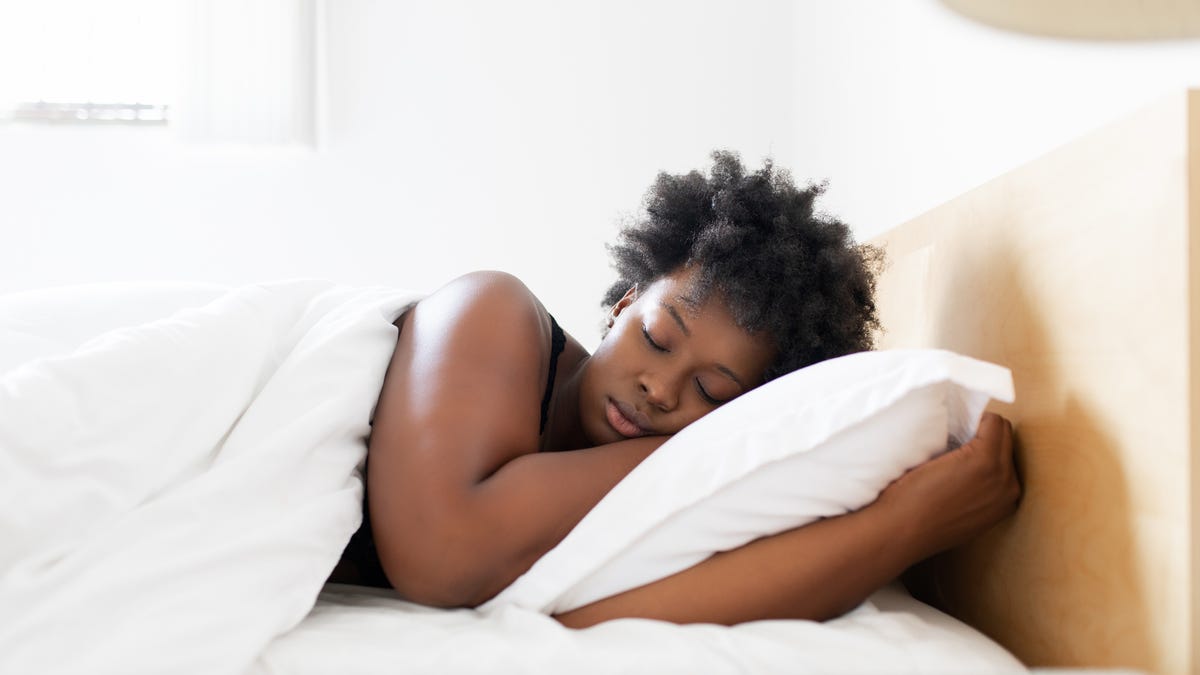What's the best sleep position for deep rest? It depends
Find out if your sleep position is harming or helping your sleep.

Back, side or stomach -- whatever your go-to sleep position, it likely feels as natural to you as being left- or right-handed. But not all sleep positions are created equal. In fact, your sleep position is one of many factors that affects the type of bed you should buy: Stomach sleepers need a supportive, firm mattress to help with spinal alignment, while back sleepers benefit from plush contouring.
But if your sleep position affects how you sleep, does that mean that one sleep position is better than the rest? Yes and no. Your sleep position can make or break your sleep quality, and some sleeping positions are better at helping ensure you have a good night's rest. But the best sleep position for you isn't necessarily the best for someone else. It depends on a few factors, like whether you snore, have any medical conditions or have back pain or hip pain.
It's important to trust your instincts. If you're waking up throughout the night, tossing and turning a lot or disturbing your partner by snoring, it might be time to try a different sleeping position.
Ben Smarr is a sleep science adviser for Oura and an assistant professor of bioengineering and data science at UC San Diego. Through Smarr's research, he's seen that people who sleep in certain positions tend to report better sleep quality overall. Since personal preferences and health concerns are a big factor, it's important to consult your doctor on your specific situation.
Keep reading to find out more about the benefits of different sleeping positions and how they affect different sleep issues and health concerns.
Read more: Best white noise machines for better sleep
Side sleeping is best for sleep apnea since you can breathe better in this position.
Side sleeping
Snoring can be a huge sleep complaint, especially if you sleep with a partner. Although not a medical concern on it its own, snoring is one sign that you may have sleep apnea -- a serious medical condition that causes you to stop breathing in your sleep.
One of the best positions for snoring or sleep apnea is on your side. "While many people are most comfortable on their backs, side sleepers snore less, so that is usually recommended," Smarr says.
Whether you snore or not, side sleeping is the preferred position for most people according to The Sleep Better Council. Sleeping on your left side specifically is the best position if you suffer from acid reflux, heartburn or indigestion at night. If you do have back pain or hip pain while sleeping on your side, you can place a pillow between your legs or knees to relieve the pressure.
Read more: 4 sunrise alarm clocks that will wake you up gently
Stomach sleeping
Sleeping on your stomach is better than sleeping on your back if you have sleep apnea since it still allows your airways to stay open, helping you breathe better. This is true for snoring too since keeping your airways as open as possible can help the issue.
The downside of sleeping on your stomach is that if you have neck pain or lower back pain, it could make it worse. This is because sleeping on your stomach can cause your neck to be positioned at an awkward angle. Also sleeping on your stomach takes your back out of a neutral position to one that's more arched, which can aggravate low back pain. If you sleep on your stomach and don't have issues, then don't worry about changing positions.
Read more: Best alarm clock of 2021
Sleeping on your back is not good for breathing-related problems like sleep apnea.
Sleeping on your back
Sleeping on your back is not a good idea if you have lower back pain or sleep apnea, according to The Better Sleep Council. And Smarr agrees, especially if you snore or have sleep apnea.
"When on your back, your airway can collapse more easily, as it has more flex front to back than side to side. Lifting your head up can help weight shift away from your neck and reduce the chance of nose or neck closing on themselves, but it's a compromise between verticality and breathing, which is a hard trade to come out on top of," Smarr explains.
That said, if you don't have sleep apnea, sleeping on your back has several benefits. Sleeping on your back is good for your spine since your weight is more centered and evenly distributed in this position. If you have acid reflux, sleeping on your back is helpful since you are facing up and less likely to experience indigestion.



